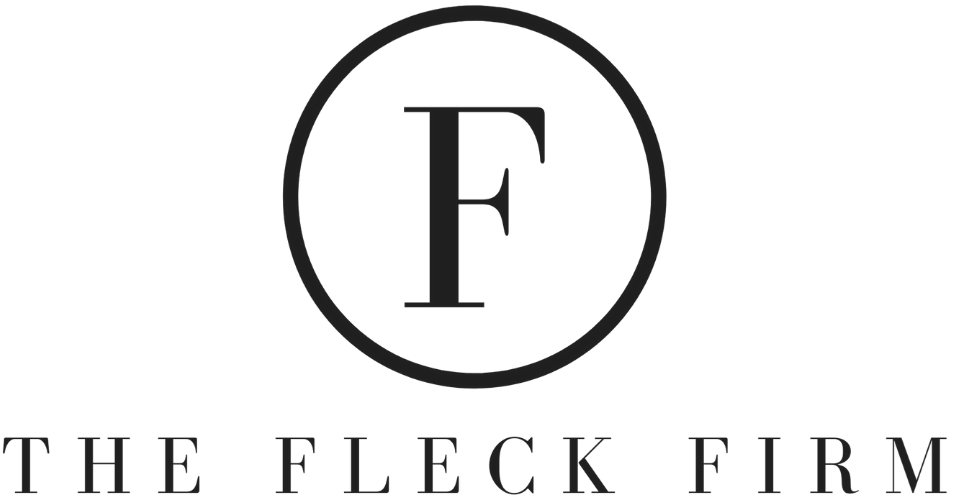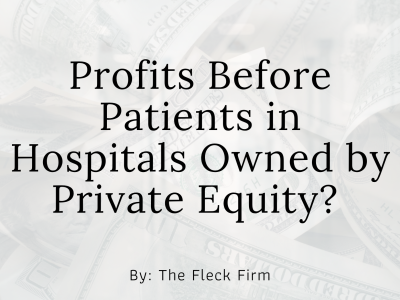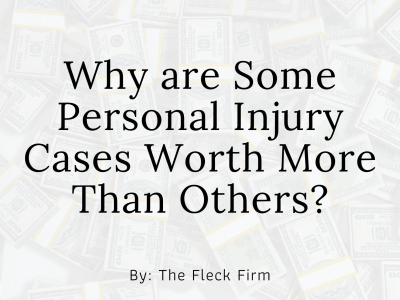Many private equity investment firms are very successful at making money. Their efforts at providing healthcare, not so much. A recent government report shows more nursing home residents die after private management takes over their facility. Investors are taking over many healthcare organizations, potentially creating the same problems elsewhere.
The recent Department of Health and Human Services (HHS) report states that when private equity investors own the few organizations remaining in an area, it can have deadly consequences, according to the Guardian.
What is Private Equity? What Do They Do?
Private equity is a term for investment funds that invest in or buy private companies that are not listed on public stock exchanges. These funds also buy public companies, make their ownership private, and then restructure them to make more money. Usually, private equity aims to quickly make a company or organization bigger and more profitable and then sell it at a profit.
This comes at a cost. Often, there are layoffs, and a company’s long-term survival is sacrificed to generate short-term income and growth. Private equity may go into debt to make the purchase, and revenue that would’ve gone into building the business is spent on loan repayments.
Private Equity and Nursing Homes
Nursing homes that own their facilities are especially attractive to private equity. They sell the real estate to a company owned by the investors, which charges rent to a nursing home that previously had no such payments to make.
Private equity management of nursing homes caused an 11% increase in patient deaths, according to a study cited in the report. Another study stated that insufficient competition in a healthcare market increases the death rate for patients suffering from heart attacks.
Fewer and Less Qualified Staff Are Expected to Do More
One example of the problems resulting from prioritizing profits was a physician who worked in a practice that was bought by private equity. The report quotes her as stating that she had to see 45 patients a day, which she considered unsafe.
The physician reported that patients contacted her office with questions that were never answered. She stated that it was just a matter of time before something terrible happened, so she left before she could be blamed for it.
Private Equity Tries to Monopolize Care, Lowering Care and Increasing Profitability
Private equity firms often reduce competition and create local monopolies through “roll-ups” or buying competing medical practices. Without competition, patients can’t go elsewhere if they’re unhappy with their care, prices can be increased without fear of patients leaving, and wages can be cut because employees have fewer alternative job options.
This has been done in nursing homes, medical or radiology practices, and hospitals. Private equity claims it rescues troubled hospitals but may accelerate their decline. Departments are closed, staff is laid off, and the quality of care suffers. Hospitals lose patients’ trust, so they try to find alternative care.
Less Qualified Staff Spend More Time with Patients
While staff members know the new owners and management priorities, patients may remain in the dark. The organizations’ names remain the same so that investors can rely on the good faith developed by the prior organization.
Patients might notice less time with more qualified staff. Since this saves on payroll and frees doctors to see more patients, patients may see a nurse practitioner or physician’s assistant instead.
Those with credentials are replaced by workers with less education and experience. Lesser qualified employees dress in scrubs like licensed workers, and patients may not see a difference. This could be seen as committing fraud against patients who expect a high level of care that those seeing them cannot provide.
Injured by a Medical Practice More Interested in Profits Than Patient Care? Call Tyler Fleck
Medical malpractice or negligence will occur in these situations, and patients will get hurt. Private equity firms may see these claims and lawsuits as the cost of doing business, as they drive up profits.
Less qualified or overworked staff may not have the knowledge, experience, time, or energy to care for you properly. They may miss what you’re saying, not ask you the right questions, fail to order appropriate tests, and misdiagnose you. This may lead to not being treated, or you get the wrong treatment, worsening your condition. Not only do you suffer longer unnecessarily, but successful treatment may become more difficult or impossible as your condition progresses over time.
Contact Us Today
The Fleck Firm can help you if a negligent healthcare provider or facility has injured you. We are dedicated and compassionate when fighting for our clients. Call The Fleck Firm for a free consultation at (270) 446-7000 so we can discuss your situation, Kentucky law, and your best options. Insurance companies have lawyers. You should have one, too.








